 I came across these 3 interesting pieces the other day (none of which have anything to do with robots). One is about a new film premiering tonight, the second is about a new study, and the third highlights the 'other' autism awareness (you know, the one that actually tries to help autistic individuals and their families, not the "vaccine awareness" or "Autism is the worst thing that can happen to a family" or other campaigns touted as 'autism awareness' these days).
I came across these 3 interesting pieces the other day (none of which have anything to do with robots). One is about a new film premiering tonight, the second is about a new study, and the third highlights the 'other' autism awareness (you know, the one that actually tries to help autistic individuals and their families, not the "vaccine awareness" or "Autism is the worst thing that can happen to a family" or other campaigns touted as 'autism awareness' these days).
"Autism Yesterday"
The film "Autism Yesterday" (yes, obviously a shot at Autism Speaks' "Autism Everyday") will premiere tonight at The Holland Center in Minnesota. It is a Generation Rescue documentary, which "explores an emerging truth many parents are discovering: autism is a reversible condition..." The film features five families, chronicling "heart-wrenching stories of despair, hope, and recovery." You can watch the trailer here, and decide for yourself. You can read the complete article on www.bio-medicine.org.
Autism Diagnosis 15-20 Years Ago...
More support, it appears, for the theory that autism cases are not necessarily on the rise over the last 15-20 years, but rather physicians are better trained to diagnose, more services are available to identify those children, and that how the diagnosis protocol has changed. Professor Dorothy Bishop, a fellow at the University of Oxford, has completed a study worth looking into. It suggests that children in the 1980's and 1990's who were diagnosed with severe language disorders would be diagnosed as autistic today.
"We can't say that genuine cases of autism are not on the increase as the numbers in our study are very small," she says. "However, this is the only study to date where direct evidence has been found of people who would have had a different diagnosis today than they were given fifteen or twenty years ago."You can find the article and more information on the study here.
Awareness on World Autism Day from Easter Seals.
Regrettably, I missed this on World Autism Day. It is the only press release by any major organization highlighting the need for adult services. Easter Seals has their own autism website, on there is a section entitled, "Stories of Hope." It's nice to see a charity showing adult autistics being successful and also thriving families who support their children.
In the event you missed it too, here are some snippets from their press release (full release is linked in the title above):
“World Autism Awareness Day provides us with an opportunity to help raise awareness about autism services and treatments available to families today and the need for the United States to share what it knows about effective interventions with other countries around the globe,” says James E. Williams, Jr., president and chief executive officer, Easter Seals. “There are a number of wonderful organizations researching and seeking a cause and cure for autism. Easter Seals is unique as the nation’s leading provider of services and support for children and adults living with autism.
Critical Need for Services
Every family living with a person who has autism faces unique challenges. Early detection and intervention are the essential first steps.“There is an urgent need for increased funding and services -- especially for adults with autism,” adds Williams. “We want to help change all of this and make a difference for families living with autism today.”
Finally. Thank you.
Autism Is Treatable
While autism is a baffling, lifelong disability, it is treatable.“People living with autism -- at any age -- are capable of making significant progress through personalized interventions and therapy; and, can and do lead meaningful lives,” says Patricia Wright, director, autism services, Easter Seals.
Treatable doesn't always mean injections, chelation, and HBOT sessions. I think they are utilizing this term, simply because that is what people want to hear (treat my child, fix them) and it is more marketable (look who they are up against for raising money, Autism Speaks, TACA, etc.). I like the point Patricia Wright makes, about how at any age, autistic individuals can make progress. So many parents see their child as an hourglass, with time running out to help them. You wouldn't believe how panicked parents are when their child is a toddler or preschooler ("if he doesn't do X by 5 years, he'll never do it," or "I'm afraid I missed all this important time, since T didn't get a diagnosis until she was 4" and so on). It's a great point, and also that Ms. Wright adds "and, can and do lead meaningful lives." Bravo.
Easter Seals + Autism
More than a generation ago, Easter Seals was front and center during the polio epidemic, working tirelessly to help children and adults with polio gain the skills necessary to live independently. And now, Easter Seals is working nationally to provide help, hope and answers to families living with autism today by delivering personalized services and treatments, as well as advocating in Washington DC to encourage Congress to finance research to improve services and supports for people with autism.
I can easily support an organization wanting Congress to finance research that will improve services and supports for people with autism (especially adults). I realize I won't agree 100% with all their campaigns or messages, but their overlying theme is that of support for autistic individuals, with a focus, most importantly, on adult autistics. What other major organization even mentions "adults" and "autism" in the same sentence? Some spokespeople for these major groups aren't even aware that adult autistics exist. So, I'll find it hard to not support Easter Seals, even if I can't stand behind 100% of their projects or partnerships. The greater good that hopefully will come from Easter Seals' campaign will benefit ALL autistics. One of the bills Easter Seals is working to pass, is the Expanding the Promise for Individuals with Autism Act of 2007.
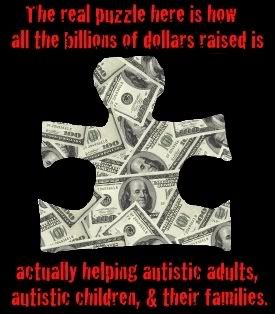







 This Way of Life
This Way of Life



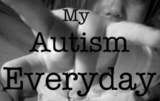





 "Autism is a way of being. It is pervasive; it colors every experience, every sensation, perception, thought, emotion, and encounter, every aspect of existence. It is not possible to separate the autism from the person."
- Jim Sinclair
"Autism is a way of being. It is pervasive; it colors every experience, every sensation, perception, thought, emotion, and encounter, every aspect of existence. It is not possible to separate the autism from the person."
- Jim Sinclair


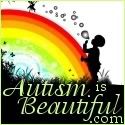






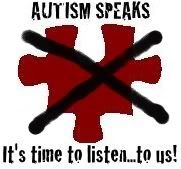












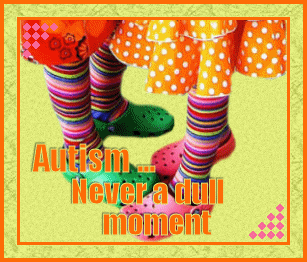

No comments:
Post a Comment